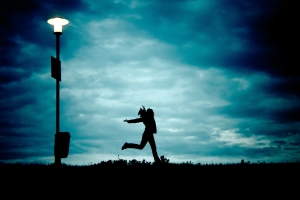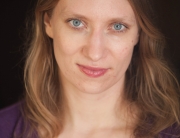“Love begins at home, and it is not how much we do…
but how much love we put in that action.”
Mother Teresa
Effective action is widely considered the magic pill of success, and we are trained to covet finding the right thing to do in order to create the life we want. Many books have been written on this subject, and the core of the self-help industry is telling people what they should do.
I’m not objecting to this fact, and clients often leave my sessions with a list of recommended actions, however there is a great deal of nuance missing in the formula of “do this, get that”. The result is people can work very hard at something and do everything right, only to have nothing work. Others can barely try or do everything objectively wrong and still succeed beyond their dreams. This counter-intuitive idea was demonstrated by the most recent presidential election.
In internal martial arts there are several principles of action I’ve trained over and over that seem to be missing from both Western culture and teachings on manifestation such as “The Secret”. In the West action is valued too highly as the cause of all results, and in “The Secret” action is valued too lowly as incidental. I posit instead that action is very important, but not in the way Western culture teaches. The principles, or secrets, of how action really works, and what makes it effective, are:
1. Action is a needle. When someone has energy they can’t help but do things. The things they do carry the quality of energy the person holds, and their actions serve to anchor the energy into the world. In this way action is akin to weaving a spell, and thinking of it as spell-weaving has been a game changer for me. It’s much less about what you do, much more about how you do it and the intention you hold. Any action – picking up a pen, fluffing a pillow, telling a story – will have a more reaching impact when it’s thought of as an expression of something rather than a means to an end.
For example, when I was newly psychic and high on unseen energies of the universe, I spent two hours making oatmeal raisin cookies for a potluck. I danced, chanted, and invoked all the power I had in the moment into making the cookies. When I brought them to the event, everyone crowded around them and people who didn’t like raisins loved these cookies. People repeatedly asked me for the recipe, to which I somewhat embarrassed said, “it was the recipe on the box”. It wasn’t what I did that was so impactful; it was how I did it.
2. Action is symbolic. Taking action signifies the willingness of the person to participate in their vision. We have a lot of weight anchored around “doing things” which is why simple steps can feel draining and hard. Taking steps has less to do with a specific result than with showing up physically and mentally for what you want. If you think of action as a way of communicating your dreams to the universe, it starts to feel lighter and more energizing because it’s not weighed down by the need for results. Writing this article symbolizes my willingness to show up for my clients, regardless of if anyone reads it. I don’t have control over the outcome, only what I do and how I do it. Knowing this means I’m not trying to manipulate a result (which is draining and hard), but to cultivate energy in myself.
3. Action can be direct or indirect. Direct action has a linear focus, for example writing for an hour a day in order to finish a book. Indirect action is more abstract and can be even more potent than direct action because of how it bypasses unconscious barriers. For example, my husband and I recently spent three weeks caring for our roses after an infestation of black spot fungus.
We pruned infected leaves, sprayed fungicide, weeded the rose beds, and added new layers of bark mulch. The energy involved was one of care-taking, and a shared effort to maintain a healthy home. The direct results of our action was mixed – the fungus persists – but it felt like an energetic preparation for our upcoming child (see last month’s article). I felt as though we were sealing our intention as parents through this new project, and that we may have an easier time in the future by how we showed up now.
There are also many, many direct actions available for being a good parent, and even more people who will tell you what you should and shouldn’t do. All of these are pre-laden with expectations, guilt, and judgments, and it’s very hard to embark on them without feeling either internal or societal pressure. This affects the energy involved in taking them, and thereby what is weaved into being. By doing an unrelated care activity together, my husband and I cultivated energy in ourselves and our home that makes current and future direct actions both easier and more pure.
If you find yourself resisting something you know you should do, focus on the feeling that would come with doing it. Care more about how you feel and your internal state, and whatever action you take will reflect this energy and anchor it into the world.









[…] last month’s article I talked about focusing on the emotions you want to feel and letting these inspire your actions. […]